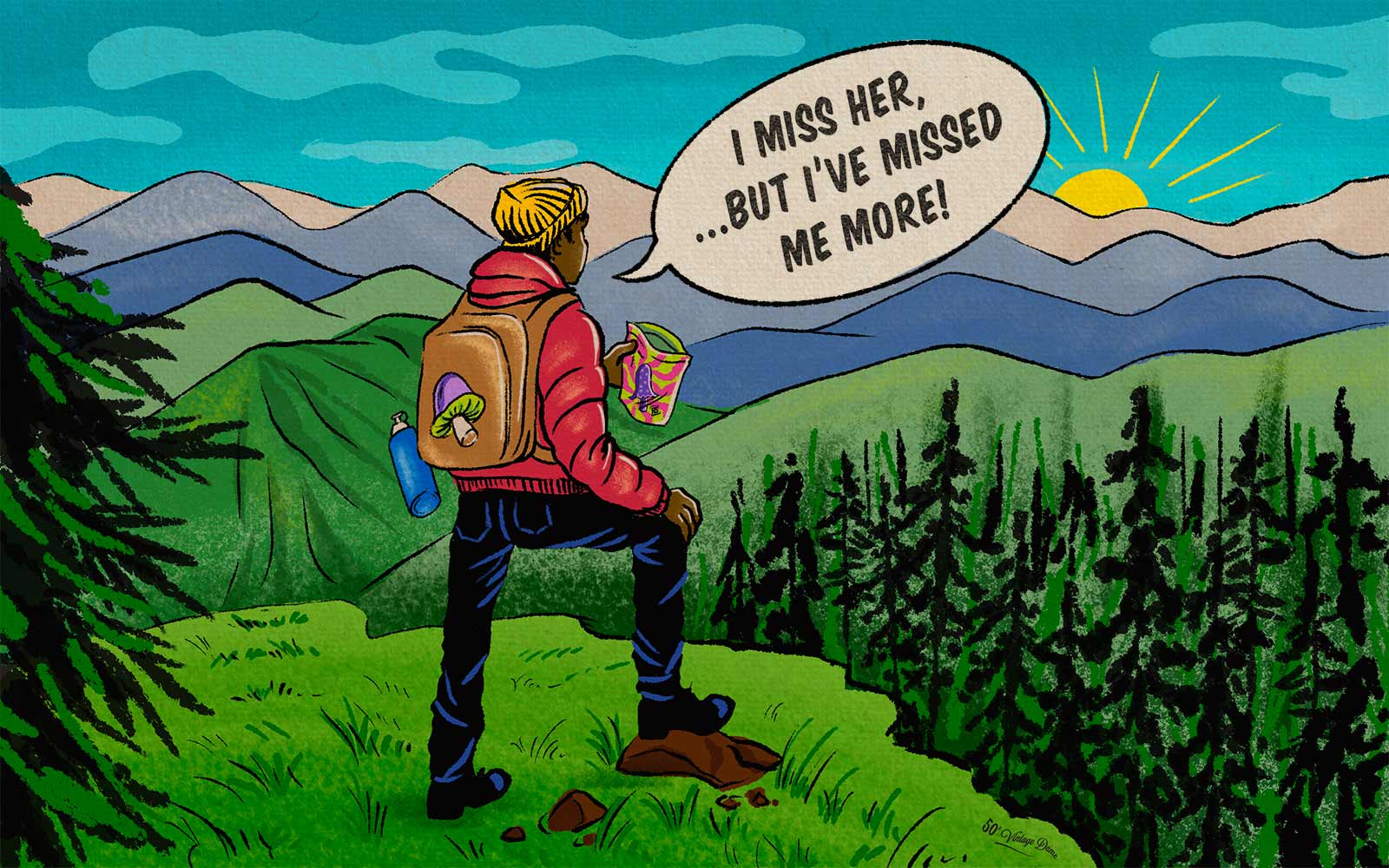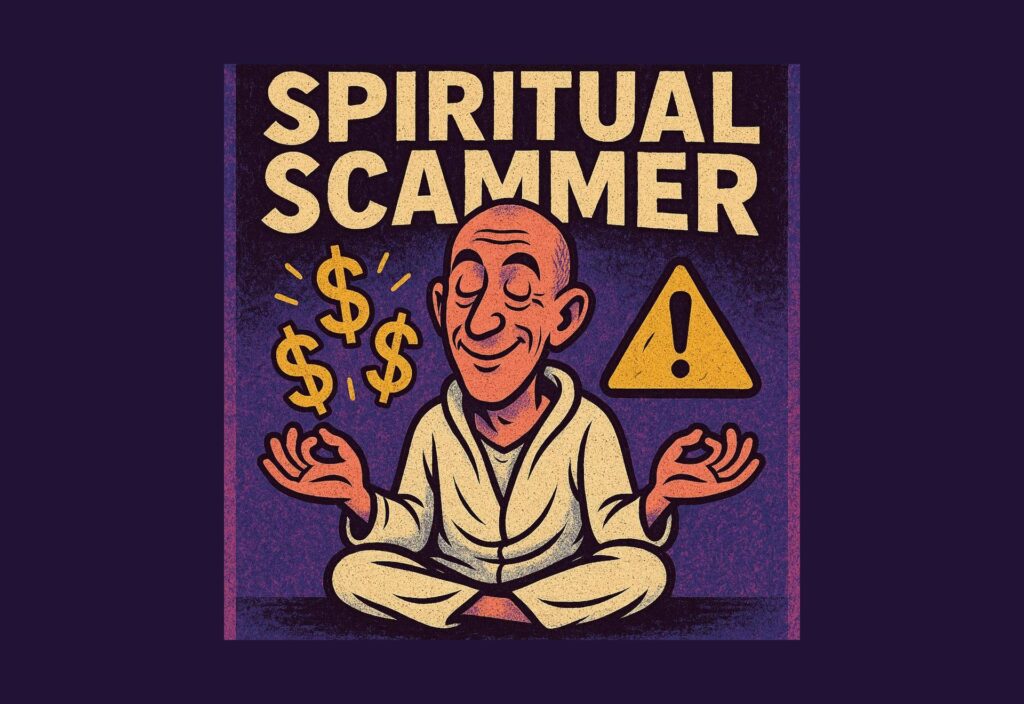The internet is full of tips and tricks for healing post-breakup. Join the gym! Block them! Give yourself time to heal! The merits of anyone else’s breakup advice can fall deaf on the ears of the brokenhearted. Navigating the post breakup experience can be emotionally messy and the stress of a relationship ending, like any transition, can take a toll on mental health. The expanding possibilities of psychedelic treatments show the benefits of these substances for a variety of mental health concerns like depression, PTSD and anxiety. But what about taking psychedelics post-breakup? Let’s explore the neurological challenges of breaking up and where psychedelics could fit into the conversation.
Why are Breakups Hard?
People experience breakups differently depending on a myriad of circumstances. How long was the relationship? Did they see it coming? Was it mutual? Does anyone have unresolved trauma? Did one of the partners run away to join the circus? Breakups are personal and though some people part ways with more ease than others, there is a somewhat universal understanding that breakups are hard. But why? First let’s look at why humans find themselves in committed relationships.
Love and the Brain
Love is a complex neurological process. The neurochemical reactions involved in the conceptual experience of love weave together neural pathways associated with attachment, reward and pleasure. Relationships feel good and provide predictable emotional, physical and social support. This can change over time and as couples part ways the predictable hits of pleasurable hormones disappear.
Humans evolved in social settings. As brains grew larger to accommodate the cognitive abilities necessary for complex social living, infants needed more time and care to ensure their survival to reproductive age. Researchers believe it’s possible the neurochemical reaction of “love” bonded parents together and allowed them to better protect their offspring. Over time, this desire for bonded relationships spread, as offspring of “loving” couples successfully grew into reproducing adults. Today’s definitions of love are much more nuanced and less focused on pure evolutionary survival, but still may rely on frameworks set in place by early humans.
The necessity of social relationships for early human’s survival may also be responsible for the neural structures that make rejection particularly uncomfortable. Breakups, no matter the duration of the relationship, have the potential to trigger feelings of rejection in any or all participatory parties. For the ancestors of modern humans, the importance of social relationships for reproduction and survival made this type of social rejection life threatening. Relying on each other for emotional support and safety meant that early humans who were better at navigating community living — therefore better at avoiding social rejection — were more likely to reproduce and pass along their prosocial genes.
This avoidance of rejection presents as the activation of the anterior cingulate cortex. When a person experiences physical pain, the anterior cingulate cortex lights up — the same reaction occurs when someone experiences exclusion or rejection. This may explain some of the physical terminology associated with breakups — heartbreak, wounds, scars — and the earnest pain people experience when separating.
So where do psychedelics fit in? Let’s explore two facets of the breakup experience that warrant psychedelic discussion.
Identity
The biological drive towards social connection influences people’s perception of self. The self is an amorphous amalgamation of self esteem, identity, hopes and dreams, and everything that makes someone them. Some believe the self exists at the very center of consciousness: the “thing” that everything happens to. People’s ideas about themselves don’t exist in a vacuum and relationships influence people’s identities.
The ending of a relationship can disrupt people’s understanding of identity and self: they used to be someones’ lover, partner, or friend and now they are not, what now?
Loss
Going through a breakup can be a traumatic loss. The grieving process can be non-linear and mirror the mourning associated with other traumatic events like death. Losing a loved one to the finality of death provides closure that can be harder to find during a breakup. The un-coupled continue to live their lives, perhaps posting on social media, pursuing other romantic interests or ignoring each other completely. Regardless, there is an element of active choice involved rather than the forced surrender to inevitable mortality. In some ways, a breakup is facing the death of a relationship. Saying goodbye to hopes, dreams and plans of tomorrow and reckoning with the souring of memories once held dear.
Psychedelic experiences not only provide relief from the restraints of ego but they have proven to be useful tools for dealing with death.
Can Psychedelics Help?
Though the application of psychedelics for breakups is not clinically researched, psychedelic treatments are already helping patients dealing with emotional processing similar to that of the heartbroken.
Caught up in hurt of rejection, newly single people can have difficulty separating their bruised egos from the reality of sometimes necessary separations. Breakups don’t always come with perfect closure and psychedelics could prove useful for people in need of perspective. The widely reported experience of ego-death can be a transcendent part of psychedelic trips. Separated from the stifling confines of self, people are free to tap into a more collective consciousness. In recent years, psychedelic researchers are looking for answers to why ego death is therapeutic and have even created scaling methods to measure people’s levels of ego death during clinical trials. In terms of breakups, separating from the individual self could allow people to perceive an interconnectedness that helps soothe their isolation and fear.
Research on the therapeutic promise of Ayahuasca highlights its potential as a tool for coping with death. In one study, participants who took ayahuasca reported lower levels of grief than those attending a support group. Anecdotally, while on ayahuasca people report interacting with lost loved ones and emotionally releasing pain they had previously been unable to address. Though more research is needed, ayahuasca’s ability to help mourner’s find closure could be helpful for people grieving their separation from a partner.
Grieving a lost loved one is a difficult process, but coping with one’s own impending death has a novel set of challenges. Psychedelics have long been explored as a tool for terminally ill patients. Before it’s illegalization, researchers administered LSD to patients with terminal cancer and found improvements in their mood and quality of life as well as a reduction in anxiety. Researchers at John Hopkins found similar effects from administering a single high dose of psilocybin. Both psychedelic substances appeared to help people wrap their heads around their own impending mortality.
Sometimes the hardest part of breaking up is the time spent waiting to find the courage to initiate separation. As one or all members of the relationship ponder the impending messiness, anxiety levels can rise, diminishing quality of life. The relief that psychedelics provided terminally ill patients could translate to people experiencing anxiety around ending their relationship. When fear of change and avoidance of pain are the ruling forces in the mind, finding peace and closure is extremely challenging. The appreciation and presence that psychedelics gave terminally ill patients could help couples consciously part ways and give clarity amidst the emotional murkiness.
Whether or not psychedelics post-breakup is a good idea is a personal decision based on a variety of factors. There is no rulebook or magic substance that can heal heartbreak. Some could argue that trying to override the natural grieving process corrupts the fullness of human emotional experience: the joys and triumphs as well as the torment and losses. Others would question the inherent righteousness of suffering and instead highlight the need for compassionate relief. Without more research, it is impossible to know the full range of benefits and drawbacks of taking psychedelics post-breakup but they could bring new hope to people navigating the end of their relationships.
Psychonaut Thoughts?
What do you think about taking psychedelic post-breakup? Could they bring more compassion and understanding into this tumultuous life change? Everyone’s experiences are different and we would love to hear your thoughts in the comments below.















